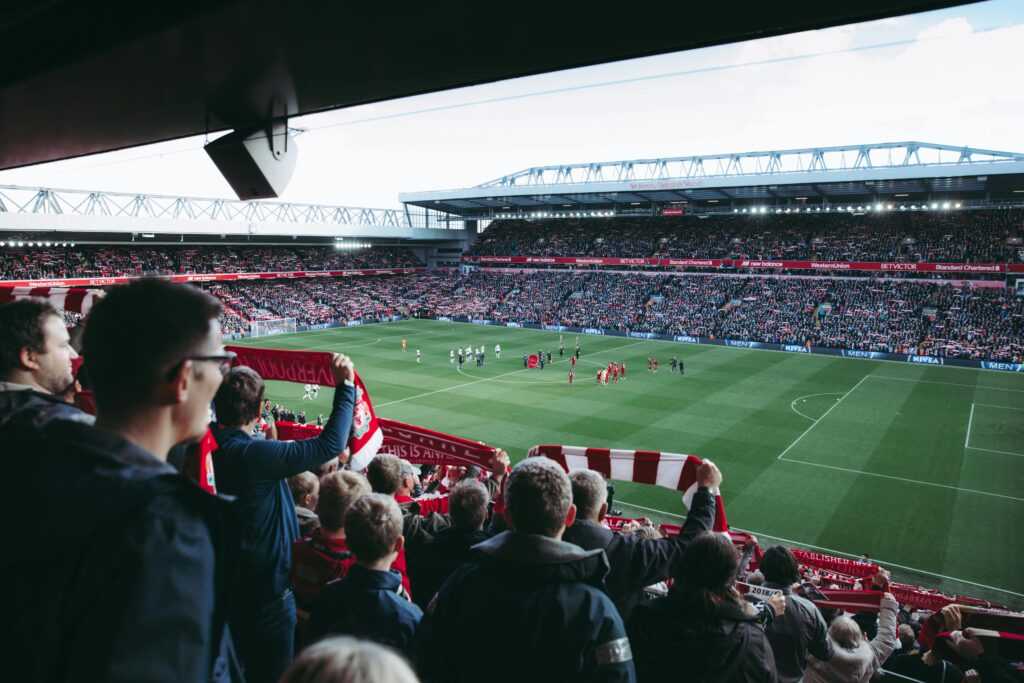Football loyalty is unlike any other passion. It usually fosters strong attachments that make fans stand by their clubs under any conditions. This level of devotion is fascinating because it goes beyond the actual sports. Most of the time, fans’ loyalty ultimately shapes their personal identity. It is also reflected in their family bonds. The support may even foster a collective sense of pride. Thus, fans remain deeply tied to their teams, regardless of the results on the pitch. Why does this happen? In this article, we will examine the reasons why football fans continue to follow their teams.
Identity and Emotional Bonding
For many supporters, a football club becomes part of their identity. Research from the University of Oxford shows that decisive wins and painful defeats act as “self-shaping experiences” that fuse personal identity with the team. Even heartbreak leaves lasting marks, creating stories that connect fans across generations.
Consider Leicester City. They had managed to stay up despite being relegated and subsequently won a title in the Premier League. This brought a feeling of pride and relief to supporters, who had witnessed the struggle. This deep, identity-driven loyalty mirrors how readers explore casino reviews not listed on GamStop via gamblingpro.pro, seeking reliability, excitement, and a sense of belonging even through challenges.
Family, Community, and Tradition
Football devotion is often passed down through generations. In many UK households, children learn club songs, colours, and history at a young age. They are taken to matches by parents or grandparents and are therefore significantly embedded with a sense of attachment. Research on family and community relationships indicates that they are among the most reliable predictors of long-term support.
Another way of reinforcing the sense of intergenerational belonging is through matchday rituals. These might include:
- Walking to the ground
- Gathering at a favourite pub
- Wearing treasured scarves
Supporter communities also use forums, chants, and shared traditions, even for those watching from home. Mimicking this level of commitment, players also build lasting communities around casinos. These online groups foster a sense of belonging, making them a central hub for shared connection.
Shared Experiences of Wins and Losses
Loyalty in football is forged not only in victory but also in hardship. Both triumph and heartbreak leave lasting marks. It can also shape identity and strengthen bonds between fans. Painful defeats or relegations can just as much unify supporters as championship success.
These shared tests of loyalty often make commitment deeper during lean seasons. Likewise, players remain loyal to casinos despite their ups and downs. They value freedom, choice, and the resilience of a community that thrives beyond restrictive platforms.
Pride, Belonging, and Collective Superiority
The fans are proud to be members of their club even in instances of poor results. Football, being an integral part of their identity, enhances their self-esteem. Wins and losses are secondary to the feeling of community. The fans believe that they are more committed than their opponents, as loyalty is not solely determined by success.
Research on supporter identity highlights how groups see themselves as unique in commitment. This mirrors how players of casinos take pride in choosing platforms that operate outside of restrictions. They form independent groups that value freedom and resilience over mainstream limitations.
The Modern Dimension: Media, Rituals and Accessibility
Social media keeps fans connected through regular updates and forums. Most supporters feel a sense of belonging to their clubs, as they can interact directly with them online. The rites also add to a feeling of belonging. These include:
- Sharing banters
- Wearing shirts
- Singing chants
- Holding weekly gatherings at pubs
Global media access now allows fans from different countries to support the same team with equal passion. In the same way that football thrives online, casinos attract players through easy accessibility. Many UK users prefer casinos because they offer instant connections, allowing them to integrate their gaming habits into their everyday routines alongside their football activities, such as football.
Why Smaller or Struggling Clubs Inspire Fierce Loyalty
Fans of underdog teams often show the strongest loyalty. This is usually because sacrifice deepens identity. Supporters of less successful clubs report stronger bonds with their teams than fans of elite teams. It is more like the harder the struggle, the more meaningful the support becomes.
Being present through relegation or repeated losses gives fans pride in their perseverance and determination. A similar pattern is observed with players at casinos who value resilience and independence. These can go to great lengths to get that freedom beyond mainstream restrictions.
Conclusion
Football loyalty is built on identity, shared experiences, community, pride, and modern connectivity. These factors explain why fans stay committed regardless of wins or losses. The same spirit of independence drives the popularity of casinos, where players choose platforms that offer freedom and a sense of belonging without restrictions.
Just as supporters remain faithful to their clubs, many players never stop exploring casinos as part of their lifestyle, proving that true loyalty always finds a way to endure.


 Parisilyn Cruz has played a pivotal role as an article writer and key contributor in the development of Innov Art Foundry. Her deep passion for the art world is reflected in the insightful and engaging content she creates, covering everything from the latest art trends to in-depth explorations of virtual reality's impact on artistic expression. Parisilyn's writing not only informs but also inspires readers, making complex topics accessible and intriguing for a broad audience.
Beyond her writing, Parisilyn has been instrumental in shaping the direction of Innov Art Foundry. Her contributions have helped to establish the platform as a trusted resource for both seasoned artists and newcomers to the art scene. By blending her creativity with a keen understanding of the art landscape, Parisilyn Cruz has ensured that Innov Art Foundry remains at the forefront of contemporary art discourse, continually providing valuable insights and fostering a vibrant community of art enthusiasts.
Parisilyn Cruz has played a pivotal role as an article writer and key contributor in the development of Innov Art Foundry. Her deep passion for the art world is reflected in the insightful and engaging content she creates, covering everything from the latest art trends to in-depth explorations of virtual reality's impact on artistic expression. Parisilyn's writing not only informs but also inspires readers, making complex topics accessible and intriguing for a broad audience.
Beyond her writing, Parisilyn has been instrumental in shaping the direction of Innov Art Foundry. Her contributions have helped to establish the platform as a trusted resource for both seasoned artists and newcomers to the art scene. By blending her creativity with a keen understanding of the art landscape, Parisilyn Cruz has ensured that Innov Art Foundry remains at the forefront of contemporary art discourse, continually providing valuable insights and fostering a vibrant community of art enthusiasts.